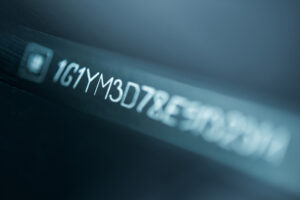Published on ThomasReuters.com by Tim Shaw –
At a public rulemaking hearing, an IRS panel heard testimony on the searchability of eligible vehicles via an online tool from a variety of organizations regarding a suite of proposed regs implementing new and used clean energy vehicle credits enacted under the Inflation Reduction Act (PL 117-169).

Background.
The proposed rules clarify aspects of Code Sec. 30D, which, for vehicles placed in service after April 18, 2023, provides a credit worth up to $7,500 for qualifying purchases of eligible new clean vehicles if the vehicle meets both the “critical minerals” requirement and have a battery capacity of at least 7 kilowatt hours. To qualify, a vehicle must complete final assembly in the United States. Also under consideration at Wednesday’s hearing were rules on Code Sec. 25E, a similar credit but for previously owned clean vehicles worth 30% of a used electric vehicle’s sales price up to $4,000.
The hearing covered three proposed regs. Issued in April, the first reg (REG-120080-22) provides definitions for Code Sec. 30D, rules for determining compliance for the critical minerals and battery components requirements, and guidance for the calculation of modified adjusted gross income and when the clean vehicle has multiple owners.
A second proposed reg (REG-113064-23) from October relates to the election to transfer clean vehicle credits under both Code Sec. 30D and Code Sec. 25E as well as guidance for recapturing the credits. Additionally, this reg includes rules for receiving the credit in the form of advance payments. The third reg (REG-118492-23) released in December provides guidance on the excluded entity provisions of Code Sec. 30D and the foreign entity of concern requirement.
Public comments.
Several presenters at the hearing advocated for an official vehicle identification number (VIN) lookup system so both auto dealers and prospective buyers can easily find out if a particular vehicle is eligible for one of the clean vehicle credits. It would be preferable, the commenters said, if customers could confirm a vehicle’s eligibility before coming into a dealership.
“Such a lookup would be a significant benefit to prospective purchasers,” said Douglas Greenhaus of the National Automobile Dealers Association, adding that such a system would show the amount of a potential credit per vehicle. “Once a credit is claimed for a specific VIN or if that VIN otherwise becomes ineligible, it would come off the VIN lookup.”
Ingrid Malmgren of Plug In America, an electric vehicle advocacy group, expanded on the matter, saying as currently proposed, such a database would only be available on the dealer end and that the public would not have access to the online portal.
“Limiting access to eligibility information just to dealers may create bottlenecks, add administrative burden, and create frustration for both dealers and consumers,” said Malmgren. “We also ask that a publicly available database be created to include eligibility information for used clean vehicles. Allowing consumers to look up used Vehicle eligibility through a VIN decoder will create administrative efficiency and help consumers identify eligible vehicle while shopping online from the comfort of their home or while at a dealership by accessing the tool through a smartphone.”
John W. Van Alst, an attorney with the National Consumer Law Center, agreed that customers should not be put in a situation where, after negotiating with a dealer for “hours or days,” find out “at the last minute” that the car they are interested in isn’t credit eligible after all. A VIN search on a “reliable and safe government site” would prevent this, he said.
Potential buyers “also need to be able to figure out which dealers are registered with the portal and authorized to submit time of sale reports, without which the consumers will be unable to obtain a credit,” he continued. “They can’t be forced to rely on going through a dealer, negotiating only to discover at the end of the day that the dealer is in fact not registered with the portal and not able to provide them that credit.”
For more information regarding the clean energy vehicle credits, see Checkpoint’s Federal Tax Coordinator ¶ L-18000.
